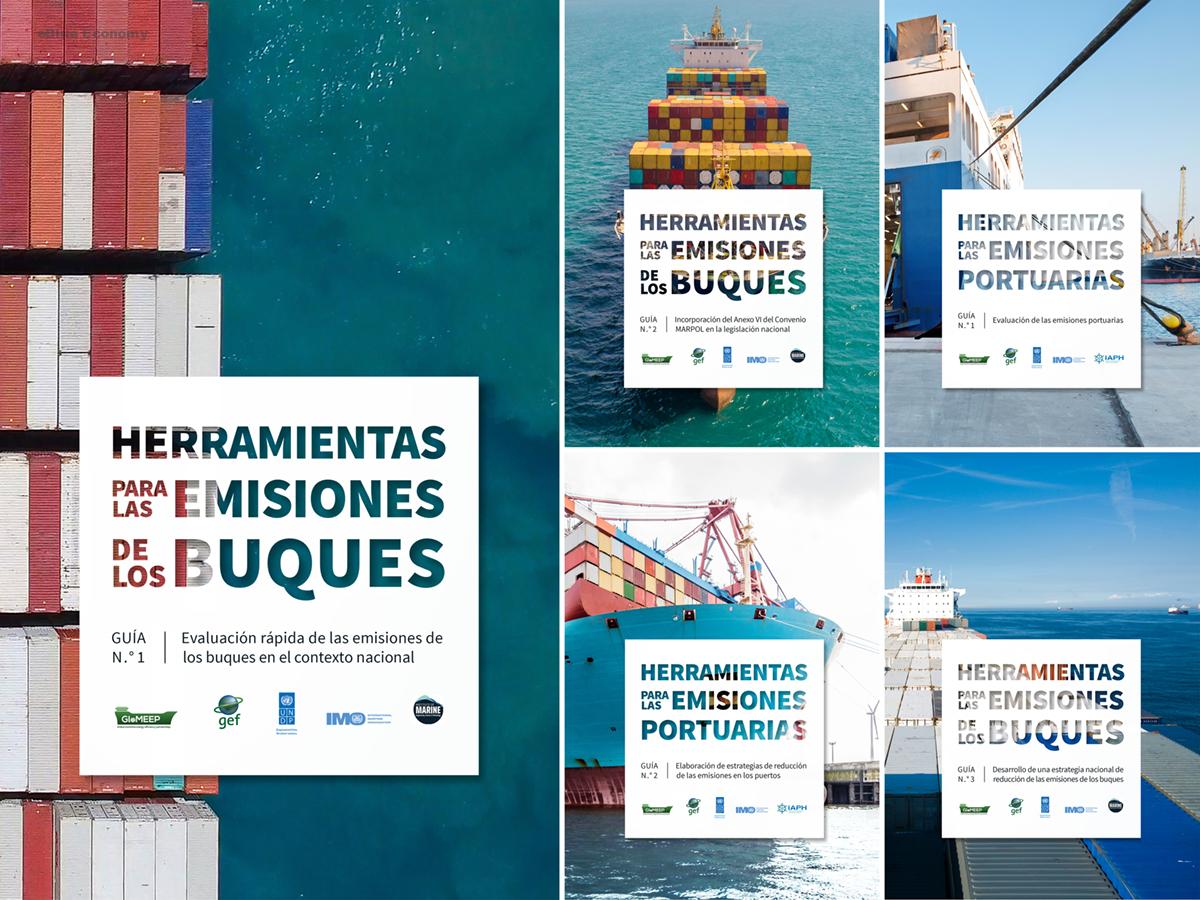The IMO-Norway GreenVoyage2050 Project has published its ship and port emissions toolkits in Spanish. The free resources, which are also available in English, provide structured frameworks as well as decision support tools for evaluating emissions reduction opportunities in maritime transport.
“Information sharing is critical to achieving global decarbonization. These toolkits provide practical decarbonization guidance for maritime and port authorities in Spanish-speaking countries. We are grateful to Prefectura Naval Argentina (PNA) for translating these technical documents,” said Minglee Hoe, GreenVoyage2050 Project Technical Analyst.
The Ship Emissions Toolkit (SET) offers guidance to countries seeking to develop and strengthen national policy and regulatory frameworks related to the prevention of air pollution and the reduction of greenhouse gas (GHG) emissions from ships. It includes three guides that can be used independently or in conjunction with each other:
SET Guide No.1 – Rapid assessment of ship emissions in the national context: This offers guidance for conducting a rapid assessment and generating both quantitative and qualitative information about a country’s maritime emissions status at the time of analysis.
SET Guide No.2 – Incorporation of MARPOL Annex VI into national law: This provides useful information for policymakers and legislators in countries preparing for accession to the 1997 Protocol or for contracting Parties to the 1997 Protocol which have not yet developed the legal framework to implement the regulations in MARPOL Annex VI in the domestic legislation.
SET Guide No.3 – Development of a national ship emissions reduction strategy: This supports countries in developing a national ship emissions reduction strategy that can guide potential policy and investment options.
The Port Emissions Toolkit (PET) offers guidance for port authorities to assess air pollutant emissions from port-related sources and develop a port emissions reduction strategy. It contains two individual guides:
PET Guide No.1 – Assessment of port emissions: This serves as a resource guide for ports intending to develop or improve their air pollutant and/or GHG emissions assessments.
PET Guide No.2 – Development of port emissions reduction strategies: This guide builds on the principles discussed in Guide No.1 and describes the approaches and methods that can be used by ports to develop, evaluate, implement, and track voluntary emissions control measures that go beyond regulatory requirements.
These toolkits were developed by GEF-UNDP-IMO Global Maritime Energy Efficiency Partnerships (GloMEEP) Project, in collaboration with its strategic partners, the Institute of Marine Engineering, Science and Technology (IMarEST) and the International Association of Ports and Harbors (IAPH). They are now hosted by the IMO-Norway GreenVoyage2050 Project which builds on the work of the GloMEEP Project.















